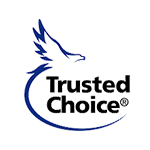If you own more than one property, understanding how insurance companies classify your home can significantly impact your coverage and costs. At The Insurance Mart in Blue Ridge, GA, we often help clients navigate the differences between a second home and a rental property—and this distinction is more important than you might think.
Second Home vs. Rental Property: Usage Matters
From an insurance perspective, how you use the property determines its classification. A second home is typically a place you and your family use for vacations or part-time living. It’s not your primary residence, but it’s also not rented out regularly.
In contrast, a rental property is a home you lease to tenants, whether for short-term or long-term arrangements. The difference in usage affects the level of risk, which is why insurance companies treat these properties differently.
Tailored Coverage for Different Risks
Second homes usually qualify for a policy similar to your primary homeowners insurance, though there may be limitations due to the property being unoccupied at times. Rental properties, however, require a landlord or rental dwelling policy, which is specifically designed to protect the structure and address your liability as a landlord.
These policies account for risks associated with renters, such as property damage or tenant injuries, and are structured to provide the appropriate coverage.
Ensure Your Property Is Properly Insured
Misclassifying your property can lead to denied claims or gaps in coverage—issues no homeowner wants to face. If you’re unsure whether your property should be insured as a second home or rental, The Insurance Mart in Blue Ridge, GA, can help. Contact us today to ensure your investment is protected the right way.







 Click to Call
Click to Call Get Directions
Get Directions